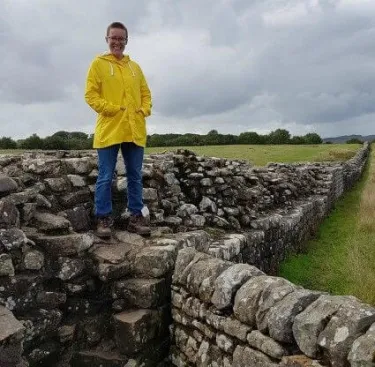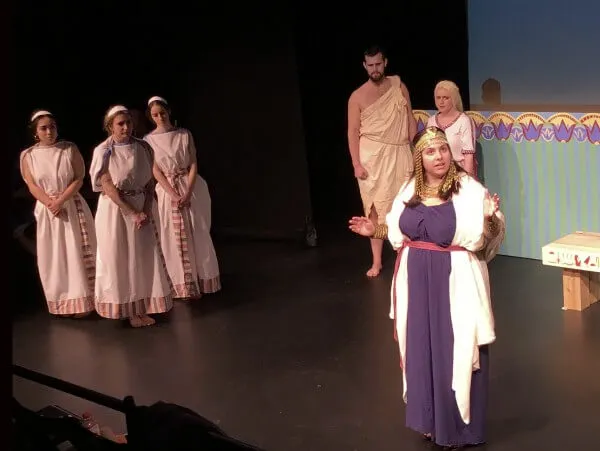
Bronwen Hudson completed her master’s degree in general linguistics and comparative philology at Oxford University. She cites the background in Latin and English acquired at UVM as crucial to her success in graduate school. “I can’t express the gratitude I feel towards so many excellent folks at UVM, but the people associated with the classics program will always have a particularly sacred place in my heart. Their teaching directly affected my postgraduate career.”
Hudson’s interest in the classical world is rooted in her childhood—she remembers her father reading The Iliad aloud to her and her siblings when she was about seven. Her family bounced around between Vermont and New Zealand during her childhood. “I was fortunate enough to be dragged around a bit—something one only appreciates later in life, I think. But I think of Vermont as home.”
The Hudsons returned to Vermont when Bronwen entered high school. She graduated a year early from Champlain Valley Union High School, equipped with a strong background in Latin. “I remember everything from ‘Caecilius est in via’ to the toga-bedecked students filing onto the bus for Latin Day (an annual event for high school Latin students in Vermont hosted by UVM classics).”
From her experience in high school, she was already familiar with the strength of the classics program at UVM.
“My rather mild love for the Latin language, and Greek and Roman history, grew and blossomed fully,” she said. “I can say without hesitation that it was my classics professors who solidified my passion for the subject. They were and are unrivaled in their dedication not only to their subject but to the students themselves.”
Her academic experience at UVM was impacted by nearly every professor in the program. She cites John Franklin as a particularly influential mentor. Mark Usher served on her senior thesis panel, Brian Walsh arranged for her to take a Latin course while she did a hiking trip in England, Jacques Bailly introduced her to linguistics, and she describes Angeline Chiu as “the most powerful positive force that could possibly exist” in the Honors College.
“Truly, I could write, play, and sing a complete musical theater piece to laud the entire classics program staff at UVM,” she said.
Hudson also appreciated the awareness among faculty of the reputation of classical writers as a misogynistic lot.
“Classics has the bleak association with white men learning from other, older white men, for the sake of upholding outdated models of education and societal structure. It’s a very worthwhile question to ask: Where are the people of color, and where are the women, in the classics?”
Happily, she found that it wasn’t a taboo topic at UVM. She saw the educational environment was not about perpetuating damaging stereotypes; “it was about studying, discussing, questioning, and unpacking myriad topics that appear in ancient history—from warfare to sexuality, and from prepositional phrases to gender roles.”
But Hudson sees the classics not as an arcane study of ancient cultures that have no foothold in the present but as remarkably relevant to current affairs and her future. She sees the study of Latin as useful in any profession.
“Studying languages in general is incredibly valuable—to understand the grammar, the history of our words, and language structure allows us a clearer, broader view of communication. What could be more important in a world like ours?”
